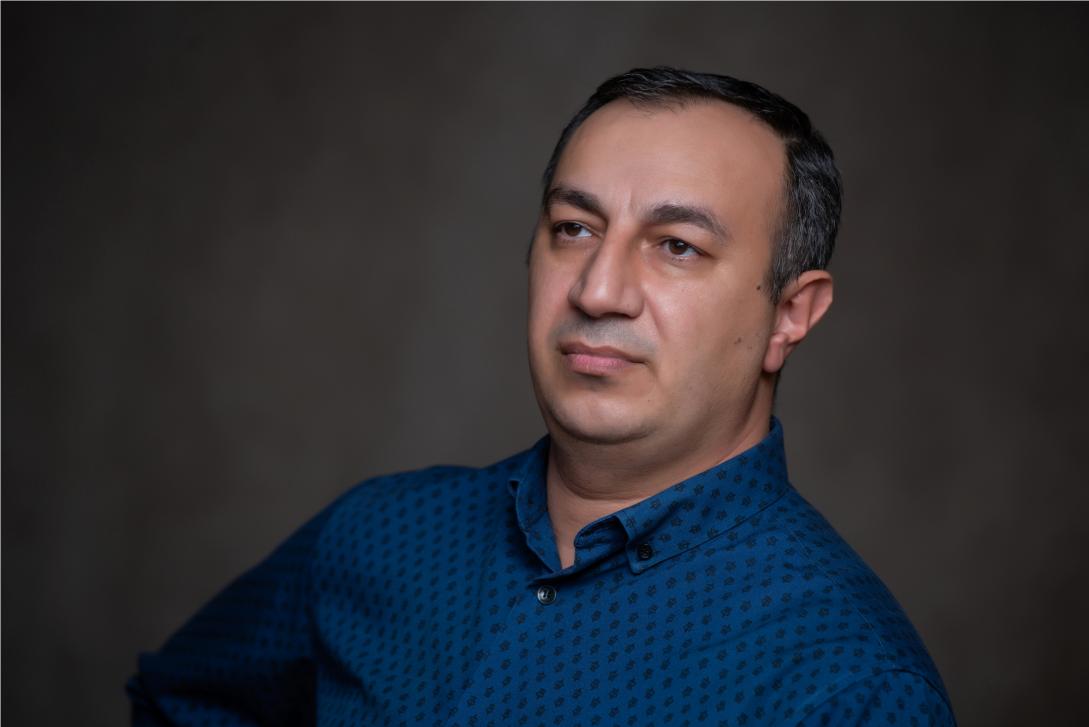Sabir Agabalayev: “Anyone can become vulnerable”

Sabir Agabalayev, Director of the public association “Keyik Okara”
I always wanted to help people, so I became a doctor. I confess that my parents and numerous relatives who worked in the medical sphere influenced my decision. However, after several years of working as a dental surgeon, I realized that I wanted to move in a different direction. I started doing business and at the same time I joined public association.
In 1999 I joined “Keyik Okara” as a volunteer, went through series of trainings and got involved in social activities. Now, I am engaged in the programme development of the organization and implement projects aimed at strengthening family values. While working at “Keyik Okara”, I realized that few people imagine how one can find himself or herself in a difficult life situation. Our organization provides assistance to families and people who found themselves in difficult life situations.
Often a person “rolls down” on the social ladder gradually without noticing it and ends up in a category of the population which is called “vulnerable” and it is very difficult to get out of it without any support. Women and adolescents with risky behavior, refugees and stateless persons, large families, families with persons with disabilities, orphans – they all are vulnerable. Vulnerability means that everything seems going well one year, but the next year one crisis follows another.
Let me give an example of women’s vulnerability. Women are huge category of the population and they are the easiest target of discrimination. Often such a situation arises when a woman is not able to provide financial prosperity for herself and her family members, which makes her dependent on the “breadwinner”.
For example, if someone in the family has disability or needs constant care, most often these responsibilities are rested upon a woman, which leads to the fact that she cannot work full-time and be constantly employed. The same thing happens when children are born and there is no help from relatives to free up time for a woman to do work and look after herself.
Now imagine what problems a woman without citizenship, education, work, any documents and housing can face. Most often a woman in such a situation will become even more dependent on financial support from outside and not be able to solve the problems she faces independently, whether it is violence or unemployment, the need to place the children in an educational institution or undergo medical examination.
Another example are young people whose parents were prone to risky behavior i.e. alcoholism and other addictions, loss of all documents and unwillingness to restore them, domestic violence and abuse. Children born by parents with risky behavior are more likely to adopt a behavior pattern that will contribute to their self-destruction. This is how vulnerability of a person or a group of people looks like.
I enjoy that at “Keyik Okara” we can provide individual support to people in difficult life situations. I note that more and more people are becoming individualists and deaf to the problems of others. To fill the gap in social protection for those groups of the population, who will never come to look for a job, restore lost documents and place the children in a school, “Keyik Okara” provides counseling, psychological and social support.
We don’t provide financial assistance, we can teach how and where to get a job, we can suggest where to study and what impact it can have on a person. We also provide social patronage, i.e. we mobilize wealthy people to support those who need help.
In this connection my dream and long-term goal is to open a social canteen with the provision of temporary housing or a hostel, and a social store where people can come and share kindness, help each other and warm up. I would like our Youth Center to function so that teenagers don’t end up on the streets, or if they are already in a difficult situation, they could come to seek for help.
We are not able to employ every person in a difficult life situation or bring out all of them from crisis. This requires a lot of time and resources that no public association or an NGO has. But I believe that if we allow the new generation to adopt the risky behavior of their parents, then the part of the population that we call vulnerable, will continue growing and become unable to integrate into the society. We must instill good habits in young people; show that the society is not indifferent to them.
Be kind to each other and there will be fewer vulnerable people!
If you want to support teenagers with risky behavior in obtaining technical skills and vocational education, please, contact the public association “Keyik Okara” at +993(12)228185 and +993(12)229389.
